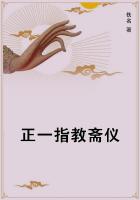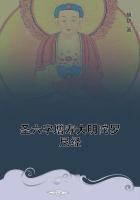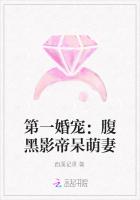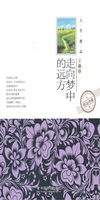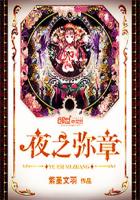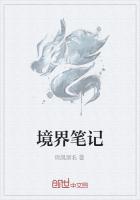"I ought to know," said Carl, "for I walked across to the east side, to look for the cannonball Mother told me was embedded there. It was fired into the church, in the year fifteen hundred and something, by those rascally Spaniards, while the services were going on. There it was in the wall, sure enough, and while I was walking back, I noticed the monuments. I tell you, they haven't the sign of a name on them.""Ask Peter," said Ludwig, only half convinced.
"Carl is right," replied Peter, who, though conversing with Jacob, had overheard their dispute. "Well, Jacob, as I was saying, Handel, the great composer, chanced to visit Haarlem and, of course, he at once hunted up this famous organ. He gained admittance and was playing upon it with all his might when the regular organist chanced to enter the building. The man stood awestruck. He was a good player himself, but he had never heard such music before. 'Who is there?' he cried. 'If it is not an angel or the devil, it must be Handel!' When he discovered that it WAS the great musician, he was still more mystified! 'But how is this?' he said. 'You have done impossible things--no ten fingers on earth can play the passages you have given. Human fingers couldn't control all the keys and stops!' 'I know it,'
said Handel coolly, 'and for that reason, I was forced to strike some notes with the end of my nose.' Donder! just think how the old organist must have stared!""Hey! What?" exclaimed Jacob, startled when Peter's animated voice suddenly became silent.
"Haven't you heard me, you rascal?" was the indignant rejoinder.
"Oh, yes--no. The fact is, I heard you at first. I'm awake now, but I do believe I've been walking beside you half asleep,"stammered Jacob, with such a doleful, bewildered look on his face that Peter could not help laughing.
The Man With Four HeadsAfter leaving the church, the boys stopped nearby in the open marketplace, to look at the bronze statue of Laurens Janszoon Coster, who is believed by the Dutch to have been the inventor of printing. This is disputed by those who award the same honor to Johannes Gutenberg of Mayence; while many maintain that Faustus, a servant of Coster, stole his master's wooden types on a Christmas eve, when the latter was at church, and fled with his booty and his secret, to Mayence. Coster was a native of Haarlem, and the Hollanders are naturally anxious to secure the credit of the invention for their illustrious townsman. Certain it is that the first book he printed is kept by the city in a silver case wrapped in silk and is shown with great caution as a precious relic. It is said that he first conceived the idea of printing from cutting his name upon the bark of a tree and afterward pressing a piece of paper upon the characters.
Of course, Lambert and his English friend fully discussed this subject. They also had a rather warm argument concerning another invention. Lambert declared that the honor of giving both the telescope and the microscope to the world lay between Metius and Jansen, both Hollanders, while Ben as stoutly insisted that Roger Bacon, an English monk of the thirteenth century, "wrote out the whole thing, sir, perfect descriptions of microscopes and telescopes, too, long before either of those other fellows was born."On one subject, however, they both agreed: that the art of curing and pickling herrings was discovered by William Beukles of Holland, and that the country did perfectly right in honoring him as a national benefactor, for its wealth and importance had been in a great measure due to its herring trade.
"It is astonishing," said Ben, "in what prodigious quantities those fish are found. I don't know how it is here, but on the coast of England, off Yarmouth, the herring shoals have been known to be six and seven feet deep with fish.""That is prodigious, indeed," said Lambert, "but you know your herring is derived from the German heer, an army, on account of a way the fish have of coming in large numbers.'
Soon afterward, while passing a cobbler's shop, Ben exclaimed, "Halloo! Lambert, here is the name of one of your greatest men over a cobbler's stall! Boerhaave. If it were only Herman Boerhaave instead of Hendrick, it would be complete."Lambert knit his brows reflectively, as he replied, "Boerhaave, Boerhaave! The name is perfectly familiar; I remember, too, that he was born in 1668, but the rest is all gone, as usual. There have been so many famous Hollanders, you see, that it is impossible for a fellow to know them all. What was he? Did he have two heads? Or was he one of your great, natural swimmers like Marco Polo?""He had FOUR heads," answered Ben, laughing, "for he was a great physician, naturalist, botanist, and chemist. I am full of him just now, for I read his life a few weeks ago.""Pour out a little, then," said Lambert, "only walk faster or we shall lose sight of the other boys.""Well," resumed Ben, quickening his pace and looking with great interest at everything going on in the crowded street, "this Dr.
Boerhaave was a great anspewker."
"A great WHAT?" roared Lambert.
"Oh, I beg pardon. I was thinking of that man over there with the cocked hat. He's an anspewker, isn't he?""Yes. He's an aanspreeker, if that is what you mean to say.
But what about your friend with the four heads?""Well, as I was going to say, the doctor was left a penniless orphan at sixteen without education or friends--""Jolly beginning!" interposed Lambert.

